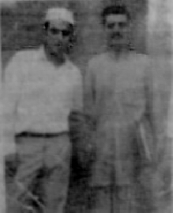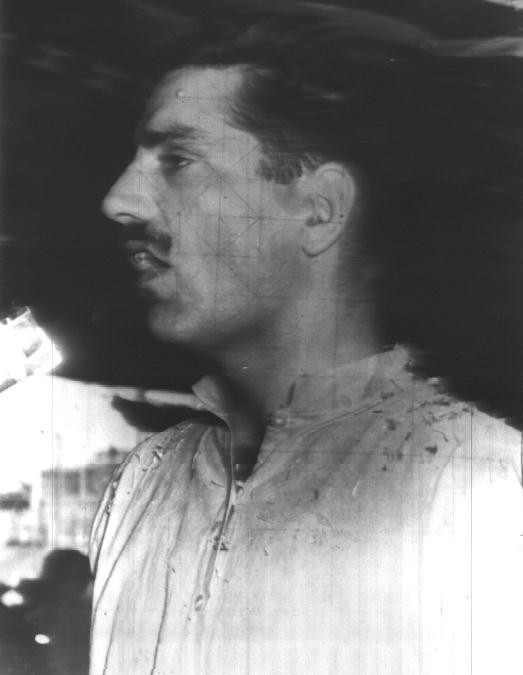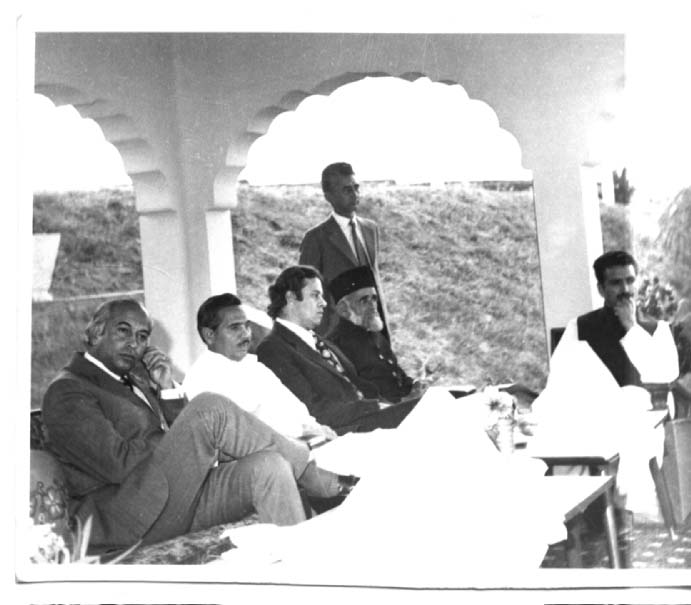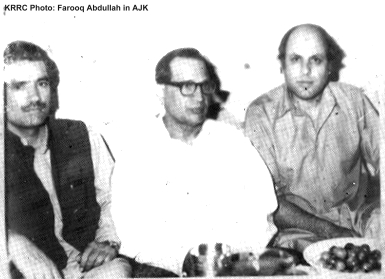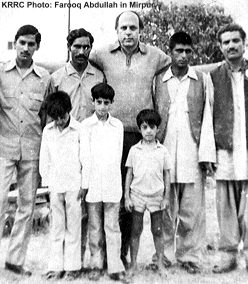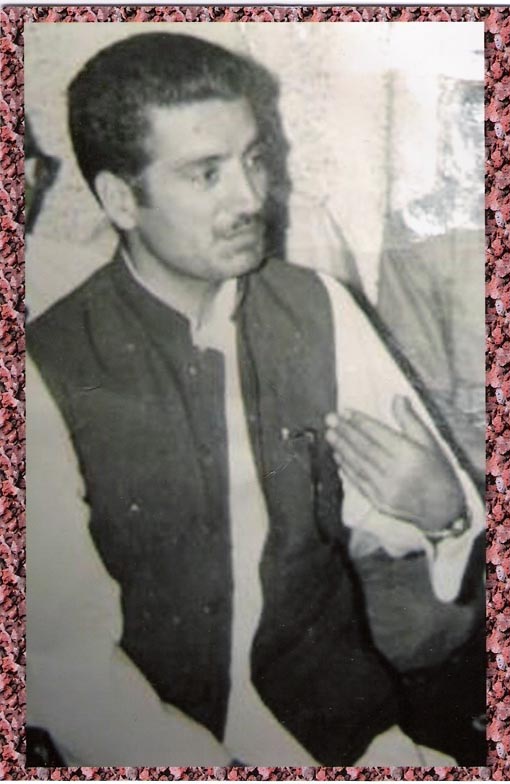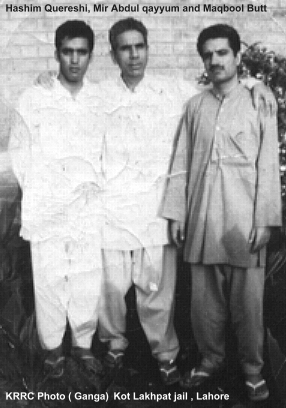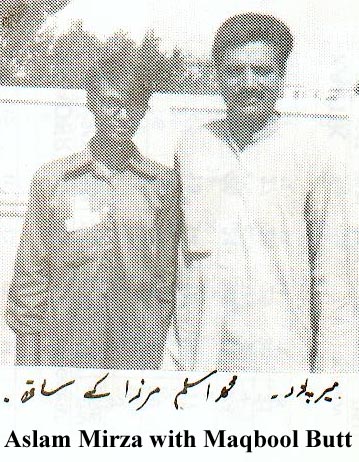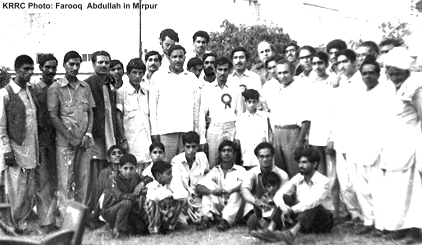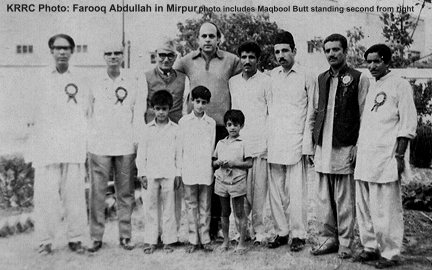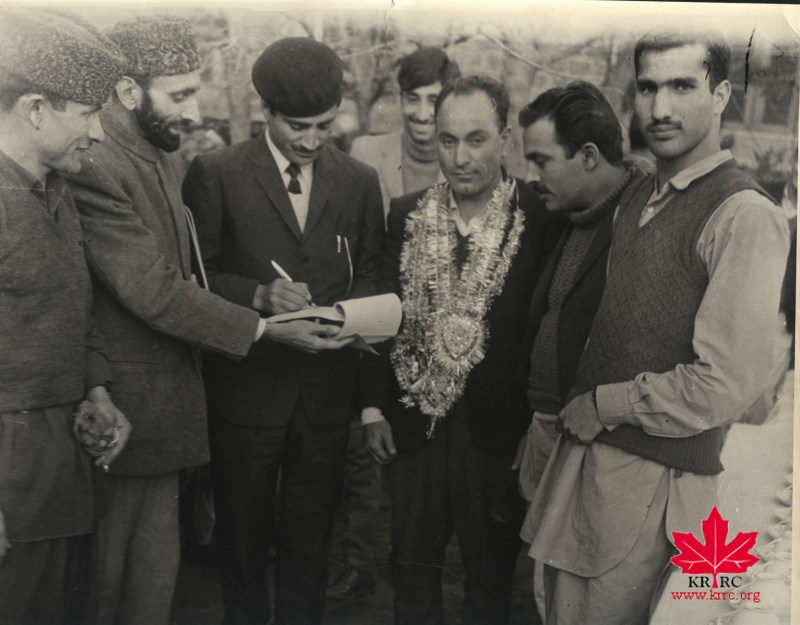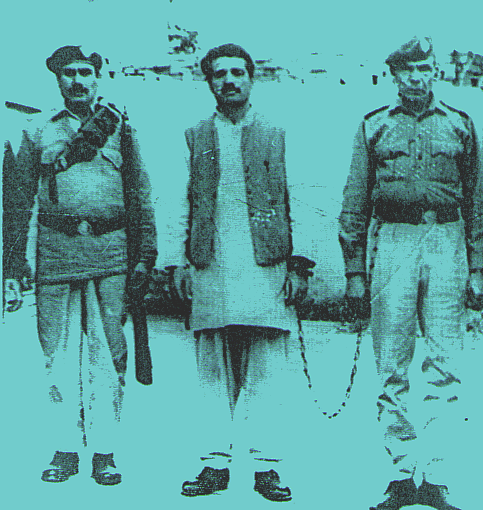Ganga, an Indian airliner was hijacked on 30 January
1971 at 1305 hours while on its routine flight from Srinagar to Jammu.
In total it was carrying 30 people including four crew members. The
Hijackers were two young Kashmiris Hashim and Ashraf Qureshi. They
brought the plane to Lahore airport and demanded the release of about
According to Khawaja (p.132) Maqbool Butt was charged under the ‘Enemy Act 1943’ of the Indian Penal Code. Ironically he was tried under the same colonial Act by the Indian Government in 1966 in the Indian Occupied Kashmir. The case started in December 1971 and after a long trial in which 1984 prosecuting and 1942 defence witnessed were called was concluded in May 1973. All but Hashim Qureshi were cleared of all charges other than dealing with arms and explosives etc. Hashmim Qureshi was sentenced for fourteen years imprisonment. The long statement Maqbool Butt submitted for this case is perhaps the most detailed reflection of his political ideology. While itcannot be incorporated in the scope of this article, a brief quote from this statement would not be out of place here:
“I can say without any hesitation that I have not designed any conspiracy nor have I been a part of any group of conspirers. My character has always been transparent and unambiguous. However, I have done one thing and that is the rebellion against ignorance, greed of wealth, exploitation oppression, slavery and hypocrisy. If the ruling class of Pakistan that is a product of imperialism and represented by the bureaucracy and military dictatorship of this country views this as conspiracy then I have no hesitation in accepting the charge”.
It will be interesting to note here that Ganga Case was carried out under special presidential orders of the then president of Pakistan Yahayaha Khan according to which the accused were denied the right to appeal against the decision of this Special Court. Despite many requests and protests in Azad Kashmir and Pakistan the right to appeal for Ganga accused was not accepted. According to Mitr Qayyum, in a conversation with the founding president of PF and veteran Kashmiri independence activist Abdul Khaliq Ansari who is also a renowned lawyer in ‘Azad Kashmir’, the then law minister of Pakistan Mehmood Ali Qasuri said ‘where in the world do you have the right to appeal against the Supreme Court decision?’. In response Khaliq Ansari asked ‘and where in the world the Supreme Court has ever been used as ‘Trial Court’?
According to Mir Abdul Qayyum, the right to appeal was restored only after the British Kashmiris warned several Pakistani ministers on their visits to Britain that the unlawful tactics of the Pakistani rulers to convict these Kashmiris will be exposed (Mir Qayyum, unpublished documents of NLF). Using this right NLF filed appealed against the Special Court’s decision about Hashim Quereshi. But it took seven years before this appeal was heard at Supreme Court where Hashim was also cleared (Khawaja op. cit. p.151).
In terms of Kashmir, the ‘Ganga’ trial had many far reaching affects on the NLF and on the wider independence politics. Firstly it affectively paralysed NLF who lost many members due to physical torture, psychological pressure and financial losses. Many also became disillusioned and disappointed due to various misunderstandings that were developed between the leadership during the course of trial. Maqbool Butt however continued his efforts to reorganise the struggle in both the armed and political fields. In 1975 the PF decided to participate in the elections held under the Bhutto’s Peoples Party Government. Maqbool Butt who at this point had no office responsibility in PF also contested the election. All PF candidates, including Maqbool Butt, lost to PPP candidates. The PF commentators claim that the result had a lot to do with massive vote riggings in favour of PPP candidates.


